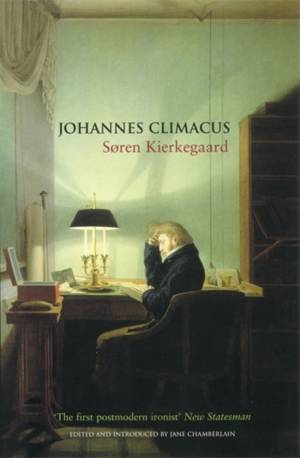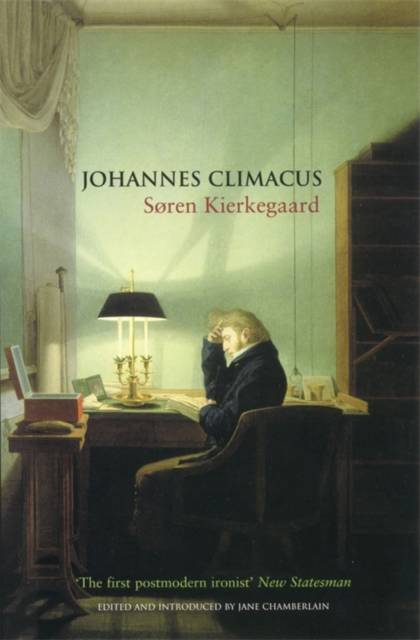
- Afhalen na 1 uur in een winkel met voorraad
- Gratis thuislevering in België vanaf € 30
- Ruim aanbod met 7 miljoen producten
- Afhalen na 1 uur in een winkel met voorraad
- Gratis thuislevering in België vanaf € 30
- Ruim aanbod met 7 miljoen producten
Zoeken
€ 12,95
+ 25 punten
Omschrijving
When Kierkegaard died at the age of forty-two, the papers found in his desk included Johannes Climacus, probably written in the winter of 1842-43. The book is a novel, as well as a work of philosophy, which tells the tale of what happens to the young Johannes Climacus as he decides to become a philosopher. At first in awe of the great thinkers, especially Hegel he sets out to follow their philosophical example by exploring the maxim 'Everything must be doubted'. The more he examines this idea, however, the more he realises how deluded his philosophical heroes are. No human life - not even a philosopher's - could ever fit into the orderly paragraphs and chapters of systematic philosophy and Hegel was, therefore, like a man who builds an enormous castle but lives in a shack nearby. Republished here in a revised translation, Johannes Climacus demonstrates that philosophy can be humorous and entertaining as well as conceptually rigorous. With its extraordinary combination of literary finesse and sharp philosophical wit, it serves as an excellent introduction to a thinker whose stylistic and philosophical talents make even Nietzsche seem tame.
Specificaties
Betrokkenen
- Auteur(s):
- Vertaler(s):
- Uitgeverij:
Inhoud
- Aantal bladzijden:
- 92
- Taal:
- Deens, Engels
Eigenschappen
- Productcode (EAN):
- 9781852426699
- Verschijningsdatum:
- 23/08/2001
- Uitvoering:
- Paperback
- Formaat:
- Trade paperback (VS)
- Afmetingen:
- 131 mm x 197 mm
- Gewicht:
- 95 g

Alleen bij Standaard Boekhandel
+ 25 punten op je klantenkaart van Standaard Boekhandel
Beoordelingen
We publiceren alleen reviews die voldoen aan de voorwaarden voor reviews. Bekijk onze voorwaarden voor reviews.











